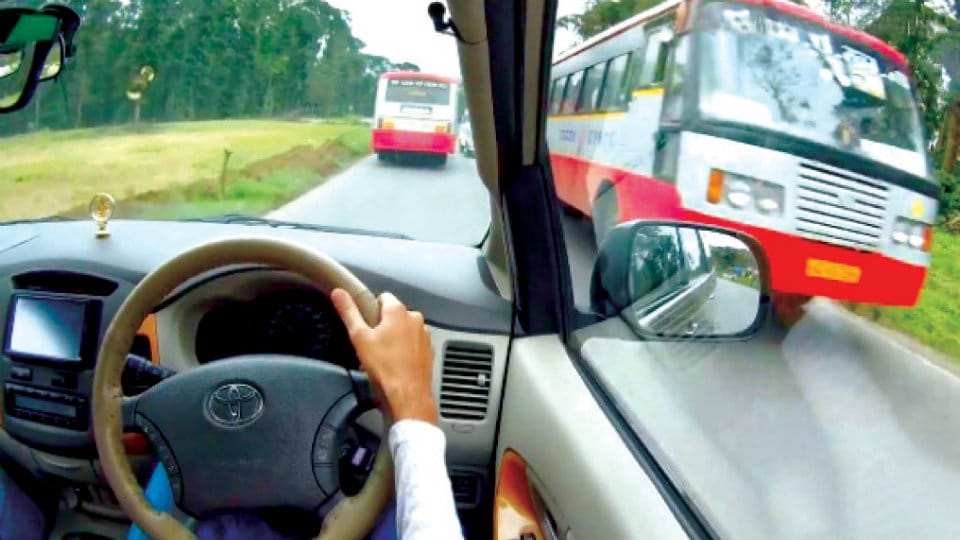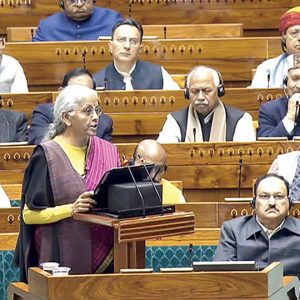- Long-distance night drivers expected to wave at Artificial Intelligence system
- Equipment beeps alarm in case the driver fails to wave hands
Mysuru/Bengaluru: Overworked and stressed out Karnataka State Transport Corporation (KSRTC) drivers are resorting to drastic measures to keep themselves awake in the course of their round-the-clock duty. They use pepper, Vicks and chillies to avoid falling asleep while driving.
Often, long-distance services of the KSRTC meet with accidents as sleep-deprived drivers are made to work putting the lives of several people at risk. Not anymore as the KSRTC authorities are planning to install Artificial Intelligence (AI) systems on the front bumper of buses to avoid collisions and alert sleepy drivers.
According to the new AI system that will be installed in over 500 KSRTC buses, a sensor will be fitted near the driver’s seat and the driver is expected to wave at the AI system every now and then. If the driver fails to wave at the sensor, the AI system assumes that the driver is asleep and emits alarm to alert the driver.
KSRTC officials said that the sensor fitted at the front bumper of the bus continuously monitors objects in the range of up to 180 feet and cautions the bus driver with a beep or an alarm, in case of any danger of collision. Another sensor fitted near the headlight handle cautions the driver in case of napping.
“The driver needs to wave his hand across the sensor at regular intervals, which can be customised, and if he does not perform the action, the system concludes that the driver is sleepy or inattentive and it cuts off the accelerator. One he waves the hard, the accelerator is resumed immediately,” officials explained.
Some private transport companies in Karnataka have already implemented the system where long-distance luxury buses are fitted with sensor-based equipment and where the driver is expected to wave at the equipment every three to four minutes. If the driver fails to do so, then the equipment emits loud alarm, waking up the sleepy driver.
A study by Bengaluru-based St. John’s National Academy of Health Sciences and MS Ramaiah Medical College in Bengaluru, which screened 185 bus drivers, aged 22-63 years, reveals that 57.2 percent (103) admitted to feeling sleepy while driving at night, 13.9 percent (25) reported experiencing sleep ‘attacks’ and 20.6 percent (35) reported decrease in alertness as the shift progressed.
KSRTC officials said that Uttar Pradesh and Karnataka will be the first two States to install such sensor-based AI systems on the front bumper of buses to avoid collisions and alert sleepy drivers.
While Uttar Pradesh State Road Transport Corporation (UPSRTC) is planning to install these systems in its fleet of over 12,500 buses, KSRTC will install them in over 500 buses, which primarily ply on long routes and during nights.
Officials said the AI system will enhance drivers’ safety in case they fall asleep or get distracted. There have been several instances of drivers tending to ignore drowsiness and causing accidents, especially on long-distance trips at night. This new system will ensure passengers’ safety as well, officials added.
The pilot run of this system has been very encouraging and officials were having a trial run since the last one year to assess the efficiency of the system and the results are encouraging. Officials said there have been no accidents involving the buses fitted with AI technology. The technology has been provided by Mumbai-based start-up Sixth Sensor Technology.








Recent Comments